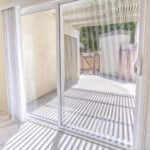Do you have trouble telling brass from bronze apart?
On the surface, brass and bronze might seem the same. Both are reddish-gold alloys that have many uses, and both have many names depending on their composition.
While they are similar in many ways, it’s important to understand the differences between brass vs bronze. In this brass and bronze guide, we will give the right information you need.
Read on to learn more about the difference between brass and bronze.
What Is Bronze
These are alloys of copper and other metals, typically tin, but sometimes also zinc, phosphorus, silicon, manganese, or aluminum. Bronze is harder than copper, but not as hard as iron. Its color varies depending on the elements present in the alloy.
It’s been used for centuries to make everything from tools to weapons to jewelry. Today, they still use bronze for a variety of purposes, including garden sculptures, musical instruments, and coins.
What Is Brass
It can vary the proportions of zinc and copper to create a range of brasses with unique properties. They combine these two metals to create a strong and durable metal that is often used in a variety of applications.
Brass is often used in the production of musical instruments and in the construction of buildings and other structures. The earliest brasses compose of 67% copper and 33% zinc.
Advantage of Bronze
Bronze is strong and tough, and you can cast it into shapes. It is also resistant to corrosion. It’s still used for these purposes today. Also, bronze is a durable metal that can be worked into a variety of shapes and sizes.
Advantage of Brass
Brass is a metal that is made up of copper and zinc. It is also an excellent conductor of electricity and heat.
It is also resistant to corrosion, making it a good choice for outdoor use. Additionally, brass has a rich, golden colour that can add beauty to any project. Brass is well known for the fact it comes in a wide variety of shapes and sizes; a good example is a brass flat bar. These have a huge range of uses in both the automotive and construction industries. Brass is commonly used in applications where corrosion resistance and low friction are required, such as for locks and gears.
What Are the Disadvantages
Brass is a relatively soft metal. This can make it difficult to work with, and it can also cause brass objects to suffer from wear and tear more easily than other types of metal.
Additionally, brass is a relatively expensive metal, which can make it impractical for some applications.
On the other hand, bronze is more likely to show wear and tear. It’s also a bit softer than other metals, so it’s not as good at holding an edge. Bronze is also complex to weld and is not as malleable as other metals.
Know What Is Brass vs Bronze
Brass vs bronze is two popular metal alloys. But before you choose, you must consider first what they are and what benefit you will get from them.
Also, you must know what are the advantages and disadvantages to give you an idea about their features. So choose what you think is best.
Did you enjoy reading this article? If so, check out the rest of our blog for more tips.




